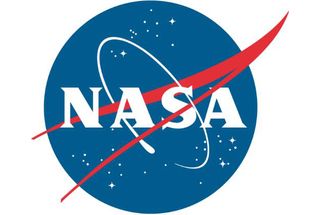No Changes to NASA Research or Communications Under New Administration

SEATTLE — As reports filter out about restrictions on research and public communications at other federal agencies since the inauguration of President Donald Trump, a NASA official said Jan. 24 there have been no changes to the agency's programs or policies.
Speaking at a town hall meeting during the 97th Annual Meeting of the American Meteorological Society (AMS) here, Michael Freilich, the director of NASA's Earth science division, emphasized that the new administration had not made any changes to his programs since taking office Jan. 20.
"Nobody has told us to change anything we are doing," he told a standing-room-only audience of more than 200 people during the hour-long session. "Keep doing your work, keep making advances, keep building credibility."
Freilich's comments came after several reports that the Trump administration has directed some federal agencies to suspend or restrict research activities and communications with the public and the media. The Huffington Post reported Jan. 23 that the Environmental Protection Agency has suspended its grant program and placed tight controls on responses to media or public inquiries.
Similar restrictions have been reported at several other government agencies, although in one case, at the Department of Agriculture, an order prohibiting scientists from talking about their work was rescinded Jan. 24 after public criticism, according to BuzzFeed.
Asked specifically at the town hall meeting about the reports of restrictions at the EPA, Freilich reiterated that it was business at usual at NASA. "We have not been given any direction to add to, delete from, or modify and refine in any way the plan with the money that has been appropriated," he said, referring to the continuing resolution (CR) funding the agency through April 28 at fiscal year 2016 levels. "There is no direction that we have received to date to change course at all."
"NASA Earth science division, and I believe I can say the NASA Science Mission Directorate, have not been given any direction to change either what we are doing, how we are doing it or how we are talking about it, as of right now," he said.
Get the Space.com Newsletter
Breaking space news, the latest updates on rocket launches, skywatching events and more!
Freilich, in fact, urged the scientists in attendance at the town hall meeting to talk to the public about the research they are doing and why it is important, noting that Earth science touches on the public's lives in ways unlike the research done in the agency's other science divisions.
"The measurements that you take, the understanding that you get, the applications that you develop have the ability to improve the quality of life of everybody on this planet," he said.
Freilich said the transition of administrations had, so far, not caused any issues for him. "Things seem to be running relatively smoothly within the agency through this transition period," he said. He noted that the "beachhead team" of political appointees at the agency, coordinating NASA's activities with the administration, was now up to eight people.
While he emphasized NASA's plans and budgets were fixed through the end of the CR in April, he acknowledged uncertainty about what might happen after that. Althoguh he said that, in his personal opinion, he thought it was likely the CR would be extended for the rest of the fiscal year, he had no firm information about those plans.
"I don't know any of the details," he said. "I'm not sure that anybody knows any of the details of where we are going to go during this time."
This story was provided by SpaceNews, dedicated to covering all aspects of the space industry.
Join our Space Forums to keep talking space on the latest missions, night sky and more! And if you have a news tip, correction or comment, let us know at: community@space.com.

Jeff Foust is a Senior Staff Writer at SpaceNews, a space industry news magazine and website, where he writes about space policy, commercial spaceflight and other aerospace industry topics. Jeff has a Ph.D. in planetary sciences from the Massachusetts Institute of Technology and earned a bachelor's degree in geophysics and planetary science from the California Institute of Technology. You can see Jeff's latest projects by following him on Twitter.

